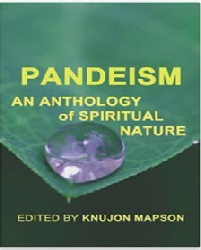The Existence of God
“You know, of course, that the Catholic Church has laid it down as a dogma that the existence of God can be proved by the unaided reason… Therefore they laid it down that the existence of God can be proved by the unaided reason, and they had to set up what they considered were arguments to prove it.”
~ Bertrand Russell, “Why I Am Not a Christian”
Raised Roman Catholic, my first grapplings with God-questions were influenced by St. Thomas Aquinas’s Summa Theologica that offered five logical proofs for the existence of God which, with the possible exception of Gradation, would support Pandeism: The Argument from Motion sets up God as the Unmoved Mover and The Argument from Efficient Cause sets up God as the First Cause which are pretty much self-explanatory and the same thing. The Argument from Necessary Being suggests that since nothing can come from nothing, God must be eternal [or the process of the universe is which would deflate the Arguments from Motion, Efficient Cause, and Necessary Being]. The Argument from Gradation argues that biological beings gradually increase in goodness and complexity naturally leading to a perfect being of the highest good, God [which would be more convincing if God were always good or, at least, good more often than the finest human being]. The Argument from Design is basically what is now referred to as Intelligent Design: The order of the universe is too perfectly constituted for it to be the result of mere chance; therefore, an Intentional, Intelligent Designer must exist behind the curtain [the vastness of the universe and the chance of multiverses weaken this argument: there was plenty of opportunity for the magic mix to come together and why all that wasted space-time?].
Whatever its motivation, I was grateful that the Roman Catholic Church offered something more than “just believe or else” and encouraged the use of the mind. The unforeseen consequence of this attempt by the Church to marry reason and God was that I continued to try to marry reason and God beyond the words of Aquinas. Over the years, I have become progressively more freethinking: “Freethinkers are those who are willing to use their minds without prejudice and without fearing to understand things that clash with their own customs, privileges, or beliefs. This state of mind is not common, but it is essential for right thinking.” If you have not done so already, please join me.
Since this is a tribute to Bertrand Russell, not Thomas Aquinas, I will follow the structure of the five arguments for the existence of God that Russell set forth in “Why I Am Not a Christian.”


